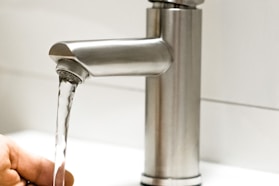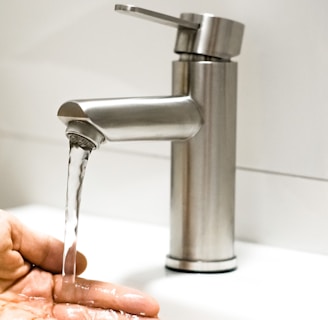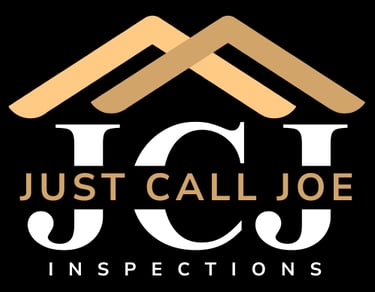Water Quality Testing

Water Quality Testing
According to the Manitoba Government, Water Quality Testing should be performed every year preferably after the spring thaw.
Well Water Quality Testing should always be performed as an additional step to a Home Inspection.
The Well Water Quality Test is a vital process for homeowners and homebuyers to ensure the proper health of their water. This inspection is crucial in identifying potential issues, ensuring compliance with local regulations, and maintaining the health and safety of their families. Below is a list of what we test for when checking your water.
Basic Water Test:
Coliform
E.coli
Comprehensive Water Test:
Coliform
E.coli
Calcium
Magnesium
Sodium
Potassium
Manganese
Zinc
Iron
Nitrogen-Nitrates/Nitrites
Chloride
Sulfate
pH
Hardness
Conductivity
Basic Water Testing:
Basic water testing for coliform and E. coli is a process of measuring the presence and amount of these bacteria in drinking water sources. Coliform and E. coli are indicator bacteria that signal possible contamination from fecal matter or other harmful microorganisms.
Basic water testing should be done at a minimum once per year, preferably after the spring thaw.
Comprehensive Water Testing:
A comprehensive water test is a process of measuring the presence and amount of various chemical and biological parameters in drinking water sources. A comprehensive water test can help to assess the quality, safety, and suitability of water for different purposes, such as domestic, agricultural, or industrial use.
Basic Water Test (Coliform & E.coli) These are indicator bacteria that signal possible contamination from fecal matter or other harmful microorganisms. High levels of these bacteria can cause gastrointestinal illnesses and other health problems.
Calcium, Magnesium, Sodium, Potassium, Manganese, Zinc, and Iron: These are minerals that are naturally present in water and affect its hardness, taste, and color. Some minerals are essential for human health, while others can cause staining, scaling, or corrosion of pipes and fixtures.
Nitrogen-Nitrates/Nitrites: These are compounds that are formed from the breakdown of organic matter or fertilizers. High levels of nitrates or nitrites can indicate pollution from agricultural runoff, sewage, or industrial waste. Excessive intake of nitrates or nitrites can cause methemoglobinemia, a condition that reduces the oxygen-carrying capacity of blood.
Chloride and Sulfate: These are salts that are dissolved in water and affect its salinity, conductivity, and corrosiveness. High levels of chloride or sulfate can indicate contamination from seawater intrusion, road salt, or industrial effluents. Excessive intake of chloride or sulfate can cause dehydration, diarrhea, or laxative effects.
pH: This is a measure of the acidity or alkalinity of water. The pH scale ranges from 0 to 14, with 7 being neutral. The pH of water can affect its taste, odor, and compatibility with plumbing materials. The pH of water can influence the solubility and availability of some contaminants and nutrients.
Hardness: This is a measure of the concentration of calcium and magnesium ions in water. Hard water can cause scaling, clogging, or reduced efficiency of water heaters, appliances, and fixtures. Soft water can cause corrosion, leaching, or increased consumption of soap and detergent.
Conductivity: This is a measure of the ability of water to conduct electric current. Conductivity is influenced by the amount and type of dissolved solids in water. High conductivity can indicate high salinity, mineral content, or pollution. Low conductivity can indicate low mineral content, purity, or acidity.
Water Changes:
Other signs that your water needs to be tested: unexplained illness, water has an off smell, or water colour changes.
Do not drink water that you believe to be contaminated.
Reporting:
Our water tests are run through an accredited lab out of Winnipeg, MB.
A report will be received within 24 hours-14 days, depending on the test and whether a rush was put on.
Rush Tests:
A rush can be added to the Coliform & E.coli tests so that it is available within two days. A rush can only be added during the work week.
Basic tests included in a Home Inspection will automatically come with rush service.
Other Tests:
At the client’s request, we can also test water for Arsenic, Boron, Barium, Fluoride, Uranium, Lead, and Copper.
Water testing for Home Daycares.
Positive Results:
If you receive a positive result stop drinking the water immediately. Introduce boiled water protocols (these protocols will be included in the report).
The next step is to shock your well and retest.
Water testing is an important maintenance item for every rural property. Even if the water is not being used for human consumption and only for livestock it is important to understand the makeup of your water. Should the water become contaminated with fecal matter or other bacteria it could be potentially dangerous for both human consumption and livestock.
For more information check out our





